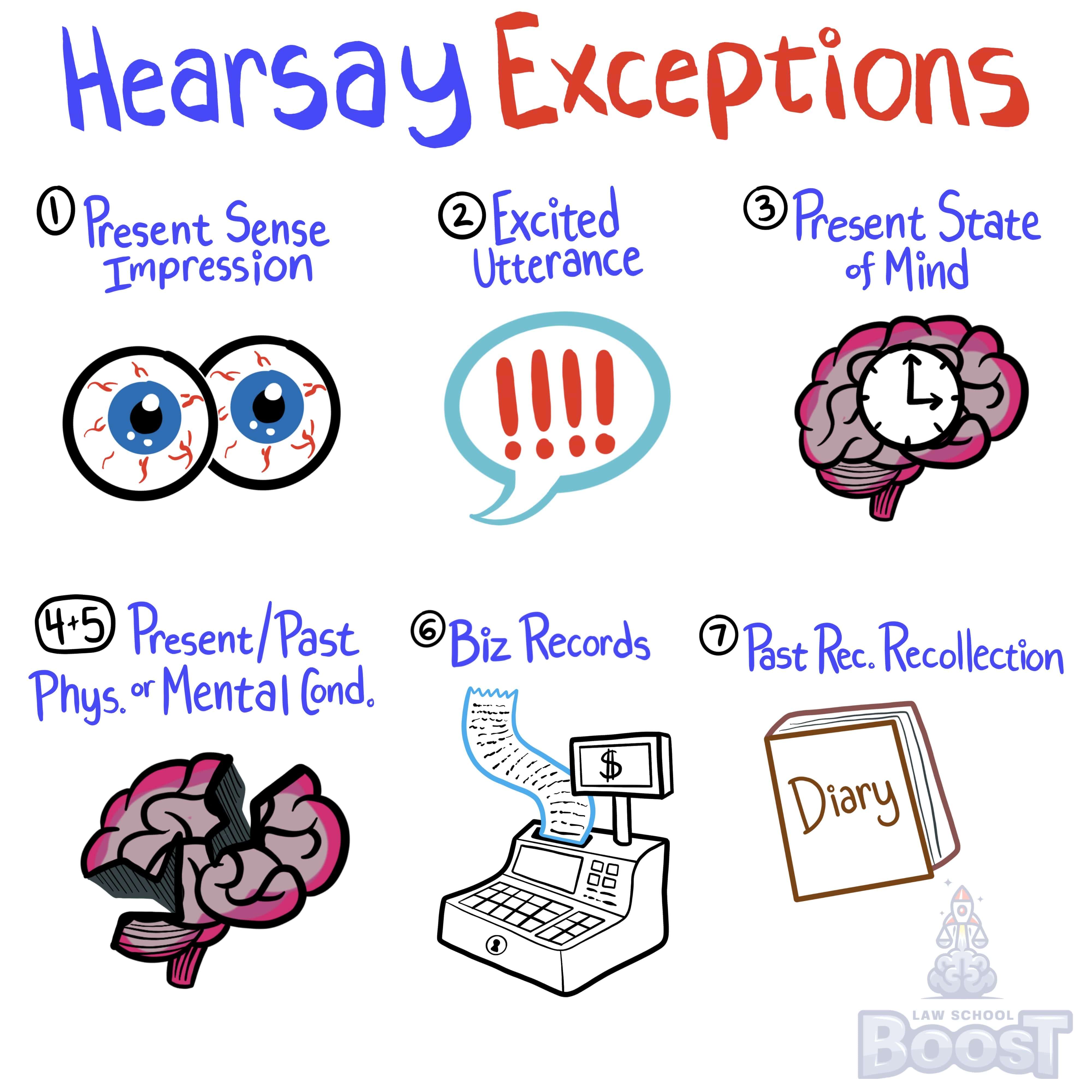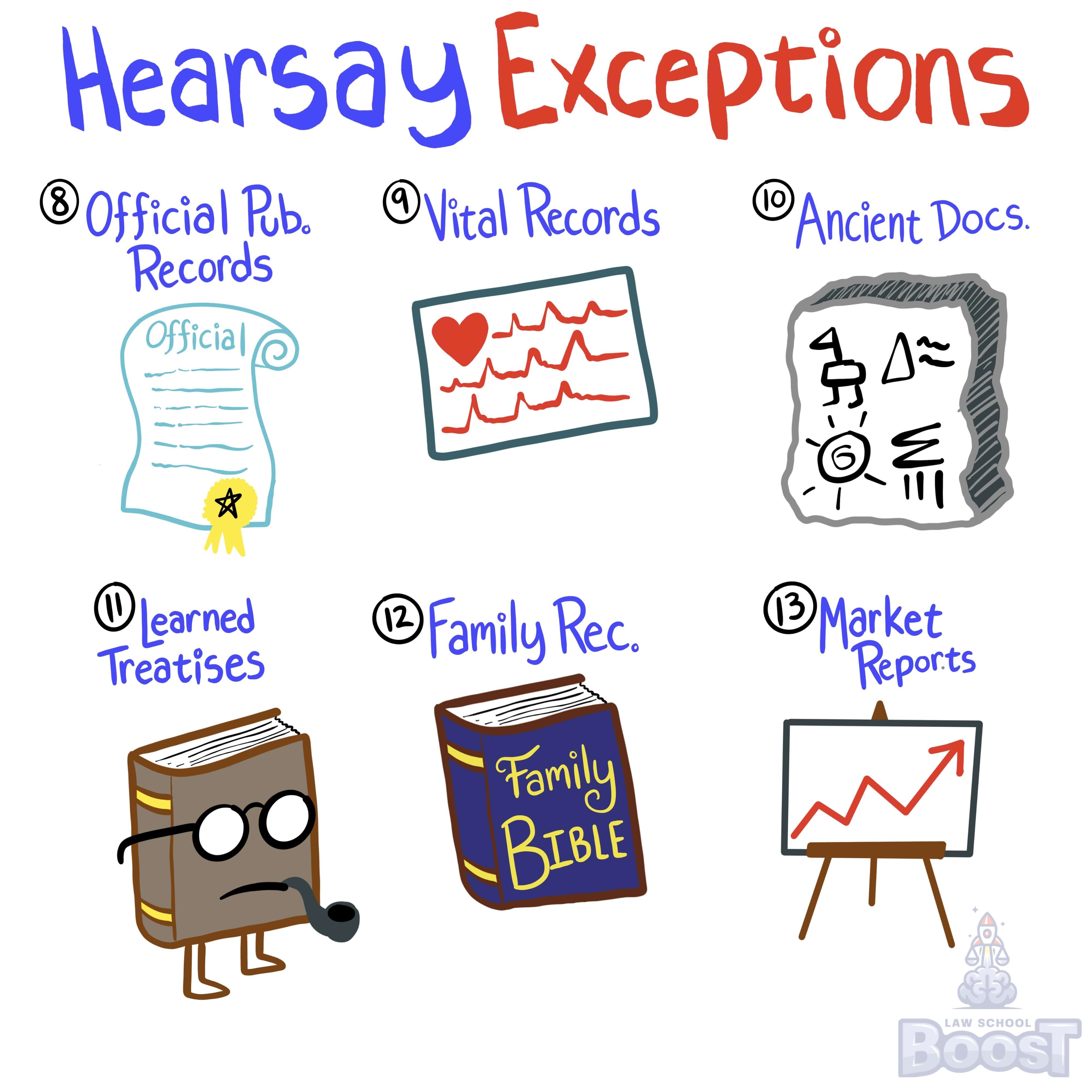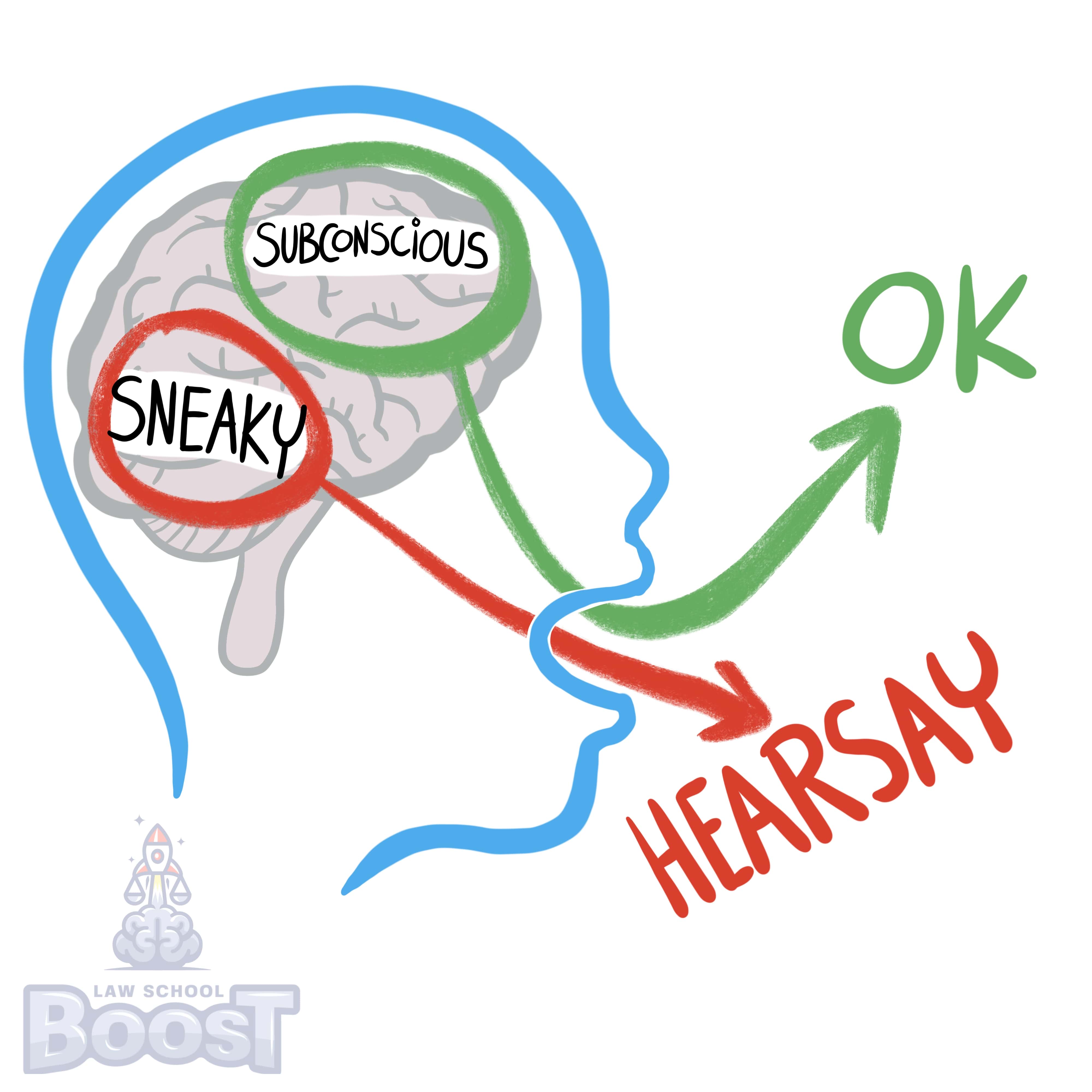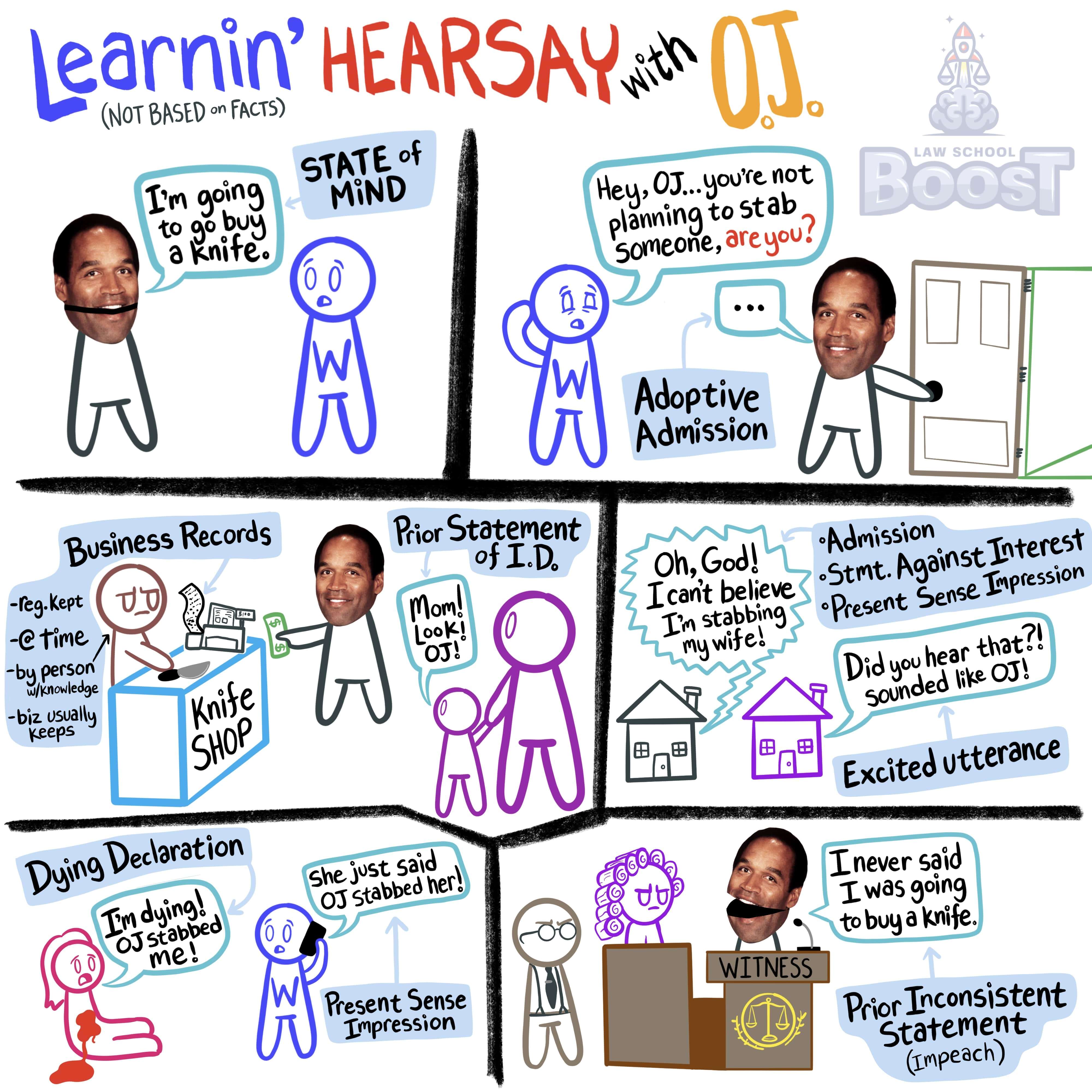🦅
Federal Evidence • Hearsay
EVID#020
Legal Definition
(1) Present Sense Impression
(2) Excited Utterance
(3) Present State of Mind
(4) Present Physical or Mental Condition
(5) Past Physical or Mental Condition
(6) Business Records (and their absence when they should exist)
(7) Past Recorded Recollection
(8) Official and Public Records (and their absence when they should exist)
(9) Records of Vital Statistics
(10) Ancient Documents
(11) Learned Treatises
(12) Family Records
(13) Market Reports
(2) Excited Utterance
(3) Present State of Mind
(4) Present Physical or Mental Condition
(5) Past Physical or Mental Condition
(6) Business Records (and their absence when they should exist)
(7) Past Recorded Recollection
(8) Official and Public Records (and their absence when they should exist)
(9) Records of Vital Statistics
(10) Ancient Documents
(11) Learned Treatises
(12) Family Records
(13) Market Reports
Plain English Explanation
We will be covering each of these exceptions in their own cards. Note that it doesn't matter whether the witness who said the statement is available or unavailable for the exception to apply. For simplicity, here is an overview:
(1) Present Sense Impression: If John said, "The light is red right now," as he's seeing it, this can be used in court.
(2) Excited Utterance: If John exclaimed, "The light just turned red!" right after seeing an accident, his statement might be allowed.
(3) Present State of Mind: If John mentioned, "I plan to stop as the light is red," it gives a glimpse into his thoughts at that moment.
(4) Present Physical or Mental Condition: If John said, "I'm feeling dizzy now," right after an accident, it's considered relevant.
(5) Past Physical or Mental Condition: If John had said, "I've been feeling dizzy lately," before an accident, it might be relevant to his condition during the accident.
(6) Business Records: Records like a company's sales logs are generally reliable and can be used in court.
(7) Past Recorded Recollection: If John wrote down, "The light was red," right after an accident but now can't remember it, his written note might be used.
(8) Official and Public Records: Government records, like a birth certificate, are typically allowed.
(9) Records of Vital Statistics: This includes things like marriage or death records.
(10) Ancient Documents: Really old documents (usually over 20 years old) are assumed to be reliable.
(11) Learned Treatises: If a medical book says something about an injury, this can be cited by an expert in court.
(12) Family Records: Family Bibles, genealogies, etc., which record family history, are often allowed.
(13) Market Reports: Stock market reports and similar public data are usually reliable and admissible.
(1) Present Sense Impression: If John said, "The light is red right now," as he's seeing it, this can be used in court.
(2) Excited Utterance: If John exclaimed, "The light just turned red!" right after seeing an accident, his statement might be allowed.
(3) Present State of Mind: If John mentioned, "I plan to stop as the light is red," it gives a glimpse into his thoughts at that moment.
(4) Present Physical or Mental Condition: If John said, "I'm feeling dizzy now," right after an accident, it's considered relevant.
(5) Past Physical or Mental Condition: If John had said, "I've been feeling dizzy lately," before an accident, it might be relevant to his condition during the accident.
(6) Business Records: Records like a company's sales logs are generally reliable and can be used in court.
(7) Past Recorded Recollection: If John wrote down, "The light was red," right after an accident but now can't remember it, his written note might be used.
(8) Official and Public Records: Government records, like a birth certificate, are typically allowed.
(9) Records of Vital Statistics: This includes things like marriage or death records.
(10) Ancient Documents: Really old documents (usually over 20 years old) are assumed to be reliable.
(11) Learned Treatises: If a medical book says something about an injury, this can be cited by an expert in court.
(12) Family Records: Family Bibles, genealogies, etc., which record family history, are often allowed.
(13) Market Reports: Stock market reports and similar public data are usually reliable and admissible.
Visual Aids




Related Concepts
What are hearsay exclusions?
What are the California-specific hearsay exceptions requiring unavailability of the witness?
What are the California-specific hearsay exceptions that don't care whether the witness is available or not?
What are the Federal hearsay exceptions requiring unavailability of the witness?
What are the Federal hearsay exclusions?
What is a hearsay exception?
What is hearsay?


